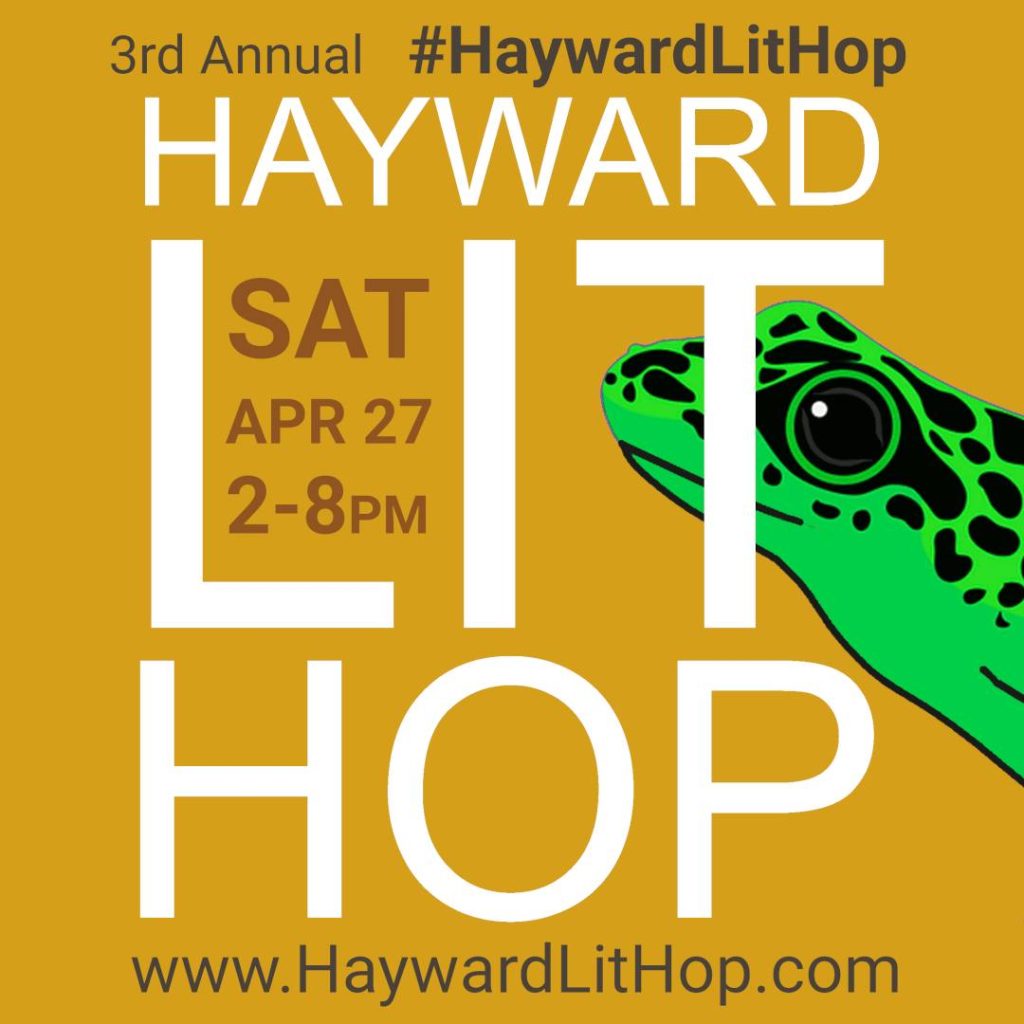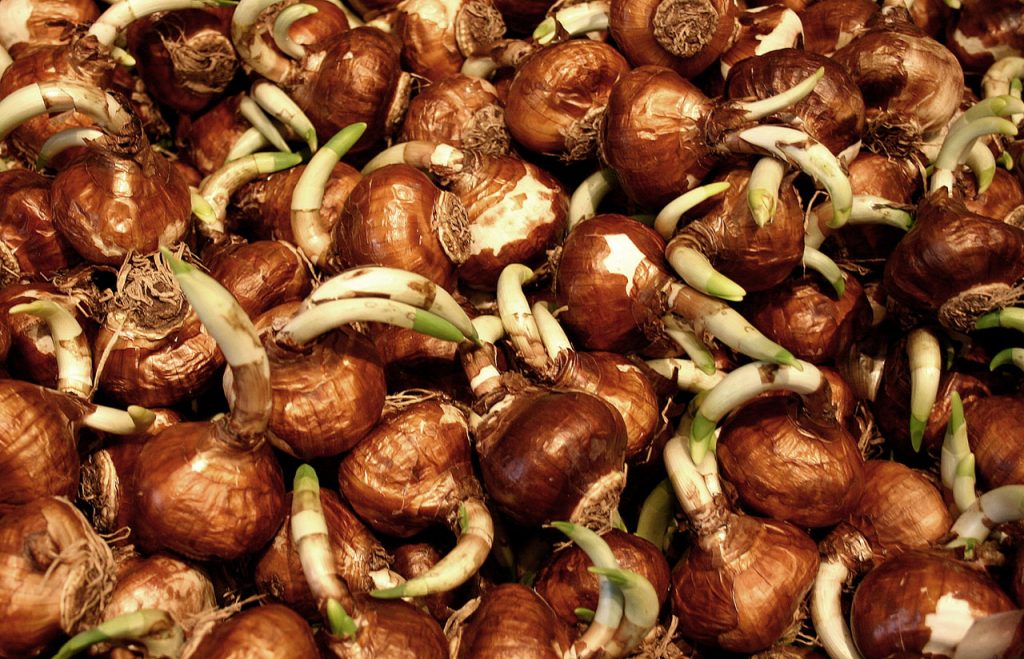We encourage everyone in the California area to attend the third annual Hayward Lit Hop on Saturday, April 27th. This is a public festival with different readings from different groups throughout downtown Hayward coinciding with Hayward’s choosing a new adult poet laureate, culminating in an afterparty at Hayward’s Odd Fellows Lounge. Several Synchronized Chaos contributors will read from their work at the 2024 Lit Hop.

This month’s issue deals with natural and cultural cycles, things coming and going, changing with time’s rhythm.
Sayani Mukherjee recollects the rise and fall of a sculpted fountain of water. Maja Milojkovic exudes the simple joy and beauty of living in a small house by the ocean.
In Brian Barbeito’s prose poetry, his speaker’s grief for his departed loved one is like memories of summer sun during a cold winter. Philip Butera’s take on grief resembles Barbeito’s, with poetry about “cottony clouds” stretched across the sky in winter. In contrast, Don Bormon presents a tortuous summer heat wave, where even the song of the birds is stilled by the weather. Mesfakus Salahin laments the twin tragedies of polluted nature and selfish, troubled humanity and pleads for mercy.
Mahbub Alam connects harm done to the planet’s ecology with illness in human bodies and souls. Sardor Yaxshilikov considers threats to the natural world, the environmental challenges posed by Uzbekistan’s industrialization and possible solutions for them. Daniyor Gulomjanov offers an analysis of the cost and efficiency of renewable energy in Eurasia, while Rahmatullayev Ahror discusses a new microcloning technique for seedling growth in laboratories.

Aqib Khurshid highlights how nature renews itself and grows again in verdant spring, as Mehvish Chouhan reflects on our personal renewal with each sunrise. Elmaya Jabbarova beckons her lover to join her in renewing their love with the new season. Kutlug Nigor’s poem concerns spring, regrowth, and the coming of the new year, as Shaxlo Safarova’s poem focuses on the promise of children.
Young Uzbek poet Kasimova Parizoda relates her determination to go forth and live her career dreams as a journalist. Graciela Noemi Villaverde relates her strident journey to retain her personal dignity and integrity.
Spanish photographer Kylian Cubilla Gomez sends up images of creative work: spiderwebs, paintings, and the buildings of a natural area. Isabel Gomez de Diego’s collection is a vibrant celebration of life: holidays, parks, children, sewing and haberdashery.
Dr. Lawrence Winkler, in his colorful and detailed Peruvian travelogue, explores a land where the present exists alongside the past. Jerry Durick’s poetry explores what we take and leave behind when we travel, as Stephen Jarrell Williams takes a less literal approach to life’s journeys, narrating a tale of lovers who withdraw from a broken world to find comfort in each other, then in their faith.

Patrick Sweeney’s fragmented one-liners show characters observing and chronicling the world, finding comfort where they can. Mykyta Ryzhykh speaks to navigating an indifferent universe, seemingly powerless against personal and geopolitical loss. Faleeha Hassan laments the pride and selfishness and privilege that leaders come from when they lead ordinary people into wars. Wazed Abdullah mourns the cost of the war in Gaza to children and civilians of all sorts.
Bill Tope addresses men’s vulnerability to society’s toxic and reductive ideas of masculinity and how those pressures victimize and demean both men and women. Rasheed Olayemi reminds us of the social and psychological toll of unemployment, as people need jobs for dignity as well as income. Sinanbinumer laments ethnic and religious intolerance’s role in worsening conflicts between Hindu and Muslim people in the Indian subcontinent and the role of sensationalized media in stoking tensions.
Pascal Lockwood-Villa’s poem narrator is a personified and dissatisfied mermaid statue, with strong opinions but little agency in her world.
Linda Springhorn Gunther’s memoir excerpt from A Bronx Girl illustrates her life as a vulnerable small child with an imaginative, loving, but delusional mother. She writes as an adult to make sense of her past, layering adult understanding onto her youthful narrative.

Dennis Vannatta’s story shows a man visiting his old haunts and discovering that the places have all changed without him. Taylor Dibbert’s poetic speaker reflects on a past relationship, at a safe enough distance now to wax philosophical.
J.J. Campbell evokes fleeting pipe dreams dashed by reality, while Daniel De Culla gives us an earthy and human look at the imperfect Gandhi.
Lola Hotamova writes of love and heartbreak, of the paradox of wanting an ex-lover to return but not wanting one’s heart broken again. Duane Vorhees’ speaker references past romantic crushes in his works on the slipperiness of memory and alienation from the world.
Zofia Mosur depicts a tender, desperate, almost incestuous, intimate relationship between a young girl and the female figures she draws.

In a more humorous vein, Stephen House looks at the human experience of procrastination, not acting on the many “shoulds” of life.
Alma Ryan challenges us to find moments of joy even if life is sad or off-kilter, while Shahnoza Ochildiyeva reflects on where and how to find personal happiness. Mirta Liliana Ramirez tastes each life experience in full like a seasonal fruit, gaining experience that helps her as she ages. Saodat Kurbanova explores how and why Uzbekistan is rated one of the world’s happiest nations.
Z.I. Mahmud probes the dawn of subjective individual consciousness in Kate Chopin’s The Awakening.
Some other works delve so far into subjectivity that they remove the narrator altogether.

Janna Aza Karpinska constructs concrete visual poetry by pasting prepositions onto canvas and finishing the phrases in various ways. Texas Fontanella’s music involves rhyming couplets from fellow Synch Chaos concrete poet Mark Young. Marieta Maglas’ poems involve multiple senses, seeming at once tactile, auditory, and visual. Mark Young takes a similar approach to his ‘geography’ paintings, creating visual landscapes of imaginary places that highlight form, color, and text. J.D. Nelson peers at everyday foods through an off-kilter lens in short pieces that inspire second and third looks.
Quademay Usanova looks at language in an academic manner, comparing word formation in the Uzbek, Russian and Karakalpak languages. Halimova Nilufar Hakimovna explores various approaches to teaching linguistics, while Norbekova Rano probes the language of mathematics, discussing the history of the concept of the integral in calculus. Muntasir Mamun Kiron extols the elegance of science and electricity and power generation technology.
Madina Fayzullaeva outlines ways to improve and enhance digital education tools while Aziza Amonova explicates the results of a new Uzbek assessment of reading levels. Feruza Axmadjonova suggests methods for teaching English to very young children while Shoshura Khusenova offers up practical suggestions on how to teach language learning to a class of mixed abilities and experience.
Saodat Kurbanova evokes the experience of writing a poem, getting outside of herself and stepping into a sense of broader consciousness.

Dilfuza Dilmurodova’s strident poem combines personal and national pride. Rahmiddinova Mushtariy offers up a poem of thanks to her mother, her kind teacher.
Zilola Khamrokulova reviews Ahmed Lufti Kazanchi’s book Stepmother, which extols the values of compassion and kindness for those in need, even those beyond your own family. Nosirova Gavhar’s short story advocates compassion for orphans and the poor. Nigar Nurulla Khalilova invites the forge of life to fashion her as an instrument for goodness and humanity.
Michael Robinson relates the powerful tale of how faith and family saved his life from drug abuse and loneliness. Kristy Raines highlights the beauty of a deep and caring marriage. Annie Johnson reflects on the steady joys of a long and committed relationship and family in her elegant poetry.
Ari Nystrom-Rice speaks to the moment where a couple’s individual life journeys merge into one, while Lilian Dipasupil Kunimasa envisions a world without race, class, or gender prejudice where all people are free to live their dreams. Jacques Fleury suggests how to navigate complex dialogue on sensitive issues without losing sight of others’ humanity.
We hope that this issue provides a jumping-off point and ideas for you to engage in conversation with people around you.
